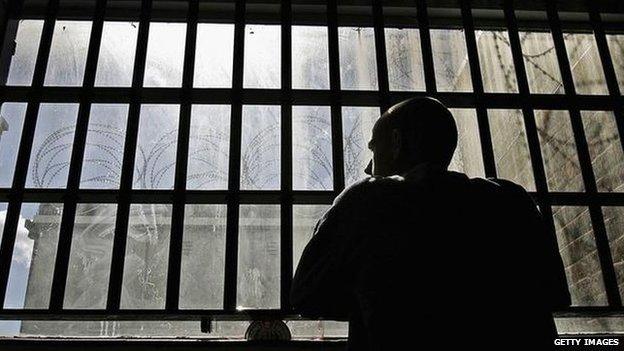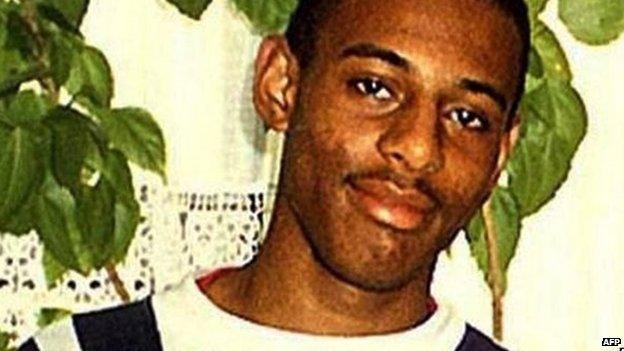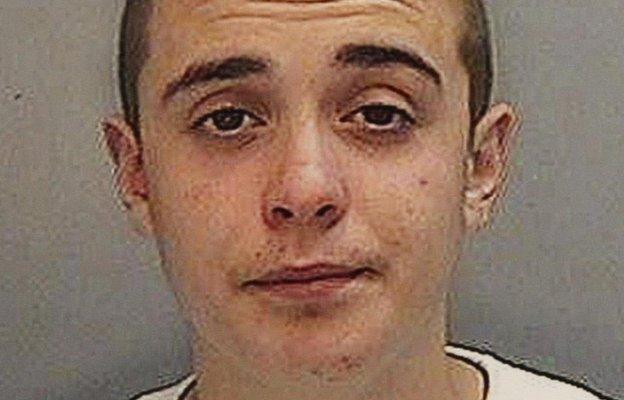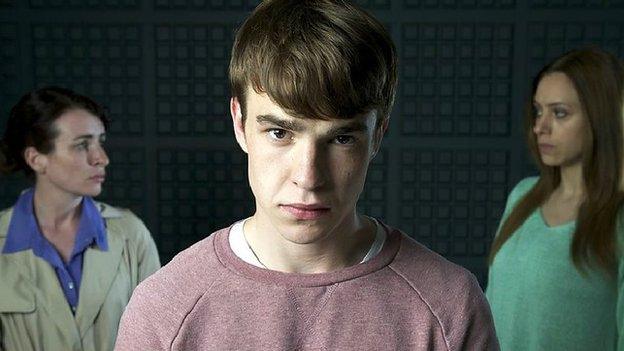Joint enterprise: What is it and should it be changed?
- Published

Garry Newlove was attacked in August 2007 after he confronted a group outside his house. He died two days later.
In January 2008, three teenagers Adam Swellings, 19, Stephen Sorton, 17, and Jordan Cunliffe, 16, were jailed for life for the murder.
Cunliffe's mother Janet claims that although he was present at the scene he did not take part in the murder.
She has told Newsbeat that her son was wrongly jailed.
All three were convicted under a law called joint enterprise. His mother is campaigning against it.
What is joint enterprise?

The joint enterprise law was used to convict the killers of teenager Stephen Lawrence
The law allows for several people to be charged with the same offence, even though they may have played very different roles in the crime.
Joint enterprise can apply to all crimes, but recently it has been used as a way to prosecute homicide - especially in cases involving gangs of young men.
Figures, obtained by the Bureau of Investigative Journalism (BIJ) using Freedom of Information requests, showed that between 2005 and 2013 there were 4,590 prosecutions for homicide with two or more defendants.
Prosecutions for homicides involving two or more defendants meet the Crown Prosecution Service's definition of joint enterprise.
Janet Cunliffe's view

Jordan Cunliffe was jailed for life in 2008 for the murder of Garry Newlove
Gary Newlove was kicked "like a football" by the youths, the court heard during the trial., external
But Ms Cunliffe told Newsbeat that she doesn't think her son deserves to be in prison.
"Jordan wasn't actually confronted by Mr Newlove, so he didn't hear any argument and he didn't have any argument with Mr Newlove," she said.
"From Jordan's point of view, as a visually disabled person, because at the time Jordan was blind, he didn't see the incident and obviously because he didn't have an argument with anyone he didn't hear anything that happened.
"We were pretty confident that he hadn't murdered anyone. The evidence proved that he hadn't murdered anyone and we were pretty confident that we could prove that."
She also told Newsbeat that she didn't know anything about joint enterprise or what it involved before the case, which saw two other youths found not guilty of Mr Newlove's murder.
"Jordan never denied that he was present at the scene," she said. "He knew he must have been in the location when it happened but he didn't have any involvement - but that doesn't seem to matter when it comes to joint enterprise."
What do other people think?
Janet Cunliffe is campaigning to have the joint enterprise law changed or scrapped completely.
"There are occasions when the law can be used and it can be used appropriately," she said.
"My point is if someone hasn't actually murdered anyone, someone hasn't planned the murder and hasn't taken part in it, then how can you be put in prison for murder when you haven't actually done anything?"
Former Lord Chief Justice Lord Phillips told the BIJ that the law could cause injustice and that joint enterprise needed reform as it was "capable of producing injustice, undoubtedly".
But Director of Public Prosecutions Alison Saunders said joint enterprise was a vital prosecuting tool.
She said: "In some cases it's not very clear because of the circumstances of the case exactly who did what, but if we know that everyone was participating in the crime then it helps us to be able to prosecute them, and to put those facts before the court.
"If you're just standing there, we won't prosecute you."

Common follows the story of 17-year-old Johnjo who finds himself implicated in a stabbing
The wife of Gary Newlove still believes all those prosecuted "are as guilty as the person doing the act".
The Ministry of Justice says the joint enterprise law has allowed some of the most serious offenders to be brought to justice and there are no plans to change it.
Jordan Cunlffe's case is being supported by the writer Jimmy McGovern whose recent drama, Common, was inspired by his case. It's available on iPlayer.
Follow @BBCNewsbeat, external on Twitter and Radio1Newsbeat, external on YouTube